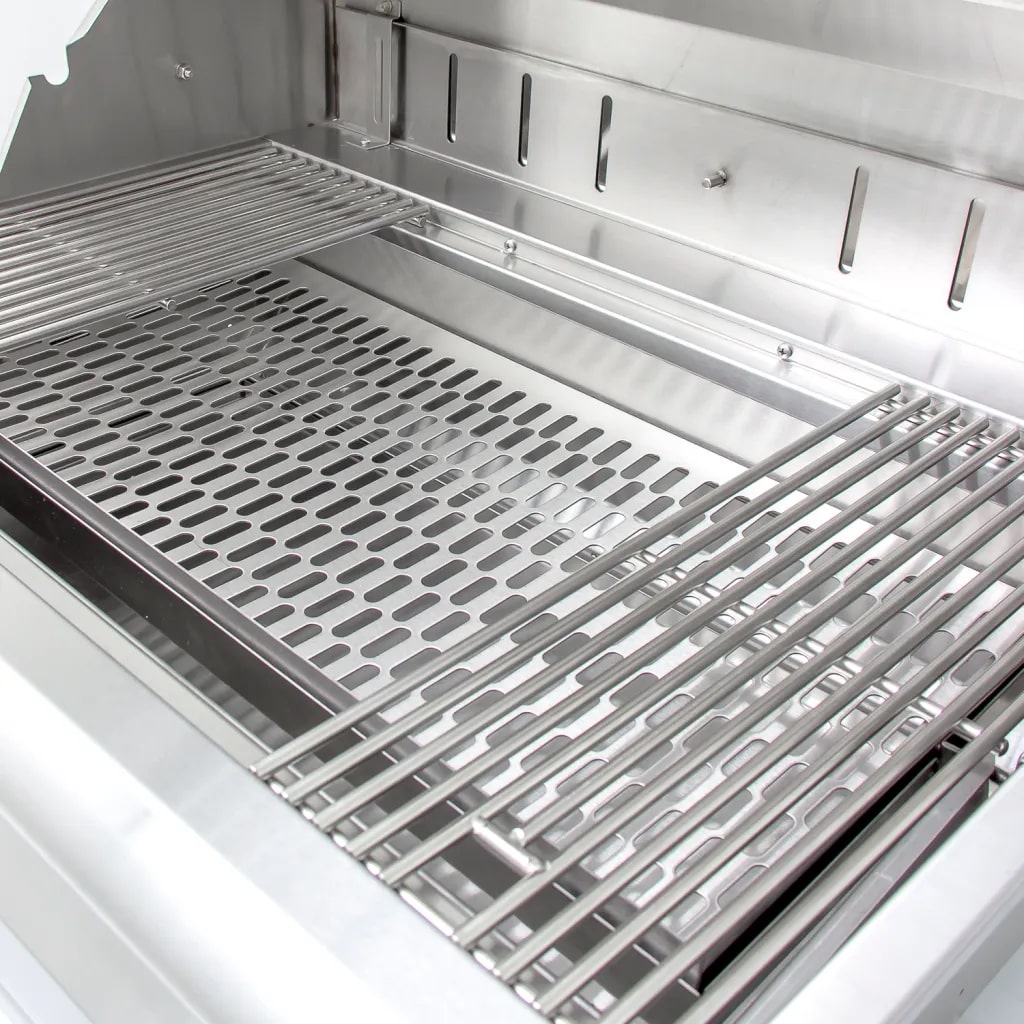Exploring Charcoal, Natural Gas, and Propane Grills
Grilling is an art form, and every grill master knows that choosing the right grill is essential to achieving culinary greatness. When it comes to outdoor cooking, there are three main contenders: charcoal, natural gas, and propane grills. Each type has its own unique characteristics, offering distinct advantages and flavors. Today, we’re diving into the differences between these grills and exploring the benefits of each.

1. Charcoal Grills: Unleashing the Flavor
Charcoal grills are the epitome of classic outdoor cooking. They ignite a primal flame that captivates the senses and infuses food with that unmistakable smoky flavor. The benefits of charcoal grills go beyond taste:
- Intense Heat: Charcoal grills can reach high temperatures quickly, making them perfect for searing steaks and achieving that coveted charred crust.
- Versatility: Charcoal grills excel at indirect cooking, allowing for slow roasting and smoking. They offer the flexibility to experiment with different techniques and flavors.
- Portability: Charcoal grills are often more compact and portable than their gas counterparts, making them ideal for picnics.

2. Natural Gas Grills: Convenience Meets Performance
For those seeking convenience without compromising on performance, natural gas grills offer an excellent option. Here’s why they stand out:
- Continuous Fuel Source: Natural gas grills are connected directly to a home’s gas line, providing a continuous and cost-effective fuel source. No more worries about running out of propane mid-grilling session.
- Quick Ignition: With a simple turn of a knob, natural gas grills ignite instantly, saving you time and effort.
- Even Heat Distribution: Natural gas grills typically feature multiple burners, allowing for precise temperature control and even heat distribution across the cooking surface.
- Easy Maintenance: Natural gas grills require minimal maintenance, with no need to refill tanks or dispose of charcoal ash. They are also cleaner, as they produce fewer byproducts during cooking.

3. Propane Grills: Power and Portability Combined
Propane grills offer a balance between power, convenience, and portability. Here’s why they are a popular choice:
- Quick and Efficient: Propane grills provide instant heat and offer precise temperature control. They heat up quickly and maintain consistent temperatures throughout the cooking process.
- Portability: Propane grills are easily transportable, making them great for camping trips. Simply connect a propane tank, and you’re ready to grill wherever you go.
- Wide Range of Options: Propane grills come in various sizes and styles, offering a wide range of options to suit different needs and budgets.
- Easy Cleanup: Propane grills are generally easier to clean than charcoal grills, as there are no ashes or residual charcoal to deal with.
Ultimately, the choice between charcoal, natural gas, and propane grills boils down to personal preferences and cooking styles. Charcoal grills provide the quintessential smoky flavor and versatility, while natural gas grills offer convenience, continuous fuel, and precise temperature control. Propane grills strike a balance between power and portability, making them great for outdoor adventures.
Whichever grill you choose, remember that becoming a true grill master requires practice, experimentation, and a passion for the flame. So, fire up your chosen grill, savor the sizzle, and let your culinary skills shine as you create unforgettable meals for family and friends. Happy grilling!



